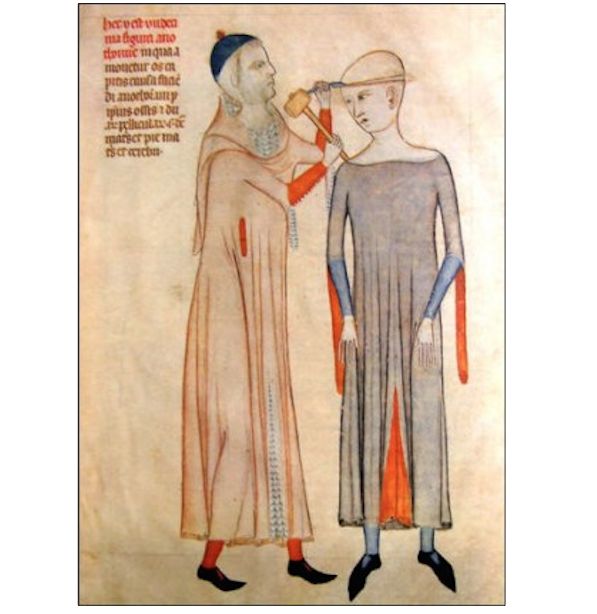
There is a myth that medical science did not progress during the Middle Ages. Maybe it was because the early Middle Ages were sometimes called the Dark Ages, although that was really more about our lack of information about the period between the fall of the Roman Empire and the Renaissance than it was about its history and culture. Anyway, some believe that medieval physicians only relied on ancient knowledge passed down from Galen, but in reality, they were experimenting with medical treatments, testing drugs, and studying human bodies through dissection.
Dissection was still rare in the Middle Ages, as few people would be willing to have their deceased family members used as a cadaver. The most likely source of bodies came from condemned criminals. The Byzantine historian Theophanes (752–818) records how “an apostate from the Christian faith and leader of the Scamari, was captured. They cut off his hands and feet on the Mole of St Thomas, brought in physicians, and dissected him from his pubic region to his chest while he was alive. This they did with a view to understanding the structure of man. In this condition they gave him over to the flames.”While many of the cures that medieval doctors came up were terrifying and often useless, it was the best they could do with what they had. Medical knowledge did advance in some ways. Read more about the medical experiments of the Middle Ages at Medievalist.
Meanwhile, in 1319 four medical students at Bologna were caught trying to exhume the grave of a criminal who was executed earlier that day so they could perform a dissection on him.By the later Middle Ages, those interested in anatomy would also look for the poor and elderly who had no family to give them a burial. Leonardo da Vinci himself performed more than 30 dissections, including that of a 100-year-old man he had met a Florentine hospital and befriended.

No comments:
Post a Comment